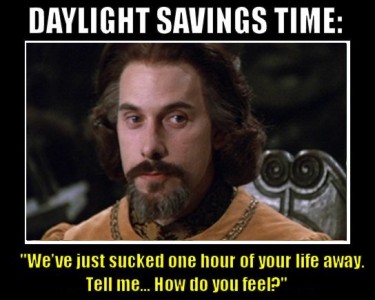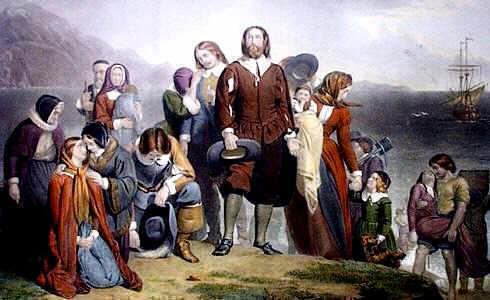Everywhere I look, Americans are hating on poor little owls. We think owls are lazy, undisciplined loners who really need to get their crap together. Probably immoral too.
 I know this because I’m an owl myself.
I know this because I’m an owl myself.
No, not the cute birds who can swivel their heads around backwards and spot mice from dark forest skies. I’m talking about people with a later circadian rhythm, AKA those of us who are not “morning people.”
Sleep researchers call morning people “larks.” You know these folks, the ones who show up to work first, freshly showered after a bracing jog. The ones that drive owls crazy with their morning cheerfulness as we whimper into our coffee cups and try not to walk into walls.
Well, we owls can feel vindicated by a new Oxford study that says working before 10 AM is “equivalent to the ravages of torture,” leading to more stress, illness, and exhaustion. It claims that our workforce would be healthier and more productive if we started the day a couple of hours later.
 Sounds great, right? It does to me, at least. No matter how many years I’ve kept to a corporate schedule, I’m still a wreck before ten. My husband finally learned he needs to write down anything he wants me to know in the morning, because any actual early conversations will fade from my memory with the remnants of last night’s dream.
Sounds great, right? It does to me, at least. No matter how many years I’ve kept to a corporate schedule, I’m still a wreck before ten. My husband finally learned he needs to write down anything he wants me to know in the morning, because any actual early conversations will fade from my memory with the remnants of last night’s dream.
Even my Army days, a torturous era of jogging before the sun rose, couldn’t break my owlish rhythm. Seems we owls will probably be fighting the great nocturnal pull to our final days, no matter how disciplined we try to be.
On the bright side, research shows that owls tend to be smarter and more creative. I’m guessing there’s a disproportionately high number of owls in the writing, music and other artistic professions.
On the other hand, we also tend to more depressed.
The question is, however, whether we’re inherently more neurotic or just more likely to become that way. We’re forced to live out-of-synch with our natural rhythms and constant exhaustion can’t be good for one’s mood.
Nor can the ingrained American belief that late-risers are lazy and morally corrupt. You don’t need to look at the ample research to know Americans look down on late-risers. Just look at our popular sayings:
“The early bird gets the worm.”
“Early to bed and early to rise makes a man healthy, wealthy, and wise.”
I can’t think of any pro-owl equivalents.
Why are we so convinced that late-risers are bad apples? There’s really no logical reason. Owls often stay up and work later into the night, so they aren’t necessarily getting more sleep or less done.

We Americans have a gut sense that self-denial is inherently good for you. We’re certain that suffering leads to better outcomes, which makes as much sense to me as trying to solve your problems by repeatedly hammering your thumb.
Plus, we seem to associate mornings with purity and nights with sin. Everyone can see what you’re doing in the morning, so you’d better be good. Morning are for church and hard work, whereas evenings are for drinking and revealing clothes.
So, anyone choosing to live more hours in the night is choosing a life in the sinful realm. Obviously.
I don’t know about you, but I’d love to start my day at ten and apparently, Sweden is on board. Swedish workplaces not only offer more flexible start times, but have also moved to a six-hour day.
And it’s working… Studies show that workers are more productive during a six-hour day because they stay focused. Employees spend less time goofing off and enjoy a better work/life balance.
With these kinds of proven results, will we be seeing a 10 AM, six-hour workday in the US?
I doubt it. Despite the research, Americans hold deeply-entrenched beliefs about the superiority of early risers and long workdays that I don’t see going away any time soon.